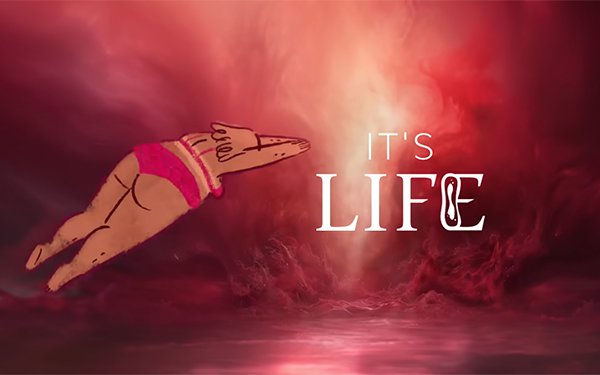
It's not always easy for young girls to talk about menstruation. But
the truth is: Women of all ages have a disconnect between what they expect from their periods and the reality.
Femcare brand Libresse/Bodyform kicked off its “Never Just a Period” campaign to highlight that dissonance.
The global integrated campaign by AMV BBDO
rolls out across digital, social platforms and TV.
Central to the work is a spot that underscores how unprepared women are, due to a lack of education or society's dismissal of women's health
issues. Director Lucy Forbes uses humor and mixed-media to illustrate how unnerving it is to have a period without knowing how to successfully cope with it.
The ad asks: “What do you
wish you’d been told?”
AMV BBDO Chief Creative Officers Nadja Lossgott and Nicholas Hulley say: 'It’s Never Just A Period' is the emotional and creative ground zero of
thousands and thousands of years of dissonance between what women+ are told about their periods and what they actually experience. Because one thing is for sure. It’s never been
‘just’ a period. And it’s definitely not ‘just’ you.”
advertisement
advertisement
Since 2020, Libresse/Bodyform has been tracking the perception and prejudice of taboos globally. The
study listened to 10,000 people across 10 countries, exploring all stages of menstrual life regarding taboos, as well as the totality of women’s menstrual experiences.
More than half
(59%) of those who menstruate wish they’d been taught more about their periods and intimate health. The campaign highlights the confusion women endure from first period to last.
The
campaign touches on the issues such as getting a period whilst breastfeeding and periods not returning for months after stopping contraception. The situation doesn't improve with age: 90% of those who
menstruate know little to nothing about perimenopause.
Lauren Peters and AugustineCerf, the agency's creative team, say the campaign addresses issues not often discussed. It
“plays its small part in representing these experiences, while also touching on the big systemic and societal issues which stand between women+ and better knowledge about their own bodies.
Whether it’s pain being minimized and dismissed in medical contexts and being told it's ‘just a period,’ when it’s always, always so much more.”